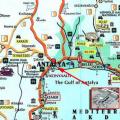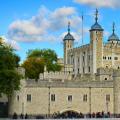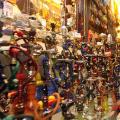Throughout the world, you can count more than one hundred peoples. All of them are of different numbers, they all have their own special traditions, their own mentality. Many live in some of their own isolated territory, such as the peoples of Russia or Africa. And what is the name of the country where the Arabs live?
Arab League
This people long story, which dates back to tens of centuries ago. Their ancestors lived in the Middle East and North Africa. Nothing much has changed at this time. Arabs still live on their territory. There is the League of Arab States, which includes not one country where Arabs live, but several located in this territory. The largest of them are:
Jews and Christians had a strict ban on riding horses and camels, it was forbidden to build churches and synagogues taller than mosques, to drink wine in public and openly pray aloud in front of Muslims. Another significant obstacle was the wear and tear of the distinctive brand of clothing, the significant duty to show respect for Muslims, and finally Jimmy was not allowed to testify during the Muslim trial. So brief and hesitant about the main myths regarding the relationship between Muslims and Jews, respectively. on the contrary, and the relevant facts.
- Saudi Arabia.
- Egypt.
- Algeria.
- Libya.
- Sudan.
- Morocco.
This organization includes twenty-two states where Arabs live, the total population of which exceeds 425 million people! For comparison: the population of the European Union is approximately 810 million people. Not a very big gap, is it? Especially when you consider that Europe has a mixed population: different nations and nationalities. And the Arabs are one people.
Note. Seeds can be written in Czech with a capital and small initial letter, depending on whether they are used as language or racial labels. Lately, especially in connection with the self-proclaimed Islamic state, Kurds often speak. Kurds can hardly be characterized by one universal definition. They live in vast territories: part of northern Syria, part of southeastern Turkey and Armenia. They also inhabit northwestern Iran and northern Iraq.
Kurds speak several different dialects and languages. Most Kurds, especially in Syria and Turkey, speak Kurdish. Kurds in Iraq and Iran speak the language of sorrow. This, in contrast to the Kurdangs using Latin influenced by Turkey, is written Arabic letters... They even differ greatly from each other in that the Kurds do not understand each other.
Ancient world
Arabs live not only in Africa and the Middle East. More precisely, the first ancestors of this group of peoples (and the Arabs are precisely a group of peoples) settled on

And the first Arab states began to appear in the second half of the second millennium BC. Moreover, even then it was believed that where the Arabs live, in which country it is not so important, the state will be one of the most developed. Before them to Ancient Rome and new Europe the dark times were still very far away.
In addition, many other religious and ethnic groups live in the territory in which they live. No part is clearly Kurdish, with the exception of a few isolated valleys in the mountains. Over time, the community was divided into separate tribes and clans, families that engaged in alliances, but also fought with each other. They were also associated with the powers that dominated the area.
Today the Kurds are consolidating their self-determination. They are a diverse nation if we consider them a nation. They are said to be the largest nation in the world without a state of their own. For the Kurds, about 40 million people are named today. But the fact that they don't have any fortune only applies in a certain sense - Kurdistan in northern Iraq today enjoys a degree of autonomy that an individual state can basically say. And the Syrian Rochava already has many features of the state.
Modernity
Now, in the twenty-first century, a huge number of representatives of this people are settled all over the world. For example, in South America in total, about 15 million 100 thousand people live. And more specifically:
- in Brazil - 9 million people;
- in Argentina - 4.5 million people;
- in Venezuela - 1.5 million people.
In the aforementioned Europe, where the Arabs live, there are more than six and a half million representatives of this nation. Most of them are in France: almost six million. Even in Asia, there are a huge number of ethnic Arabs who are settled throughout the region.
You said that the Kurds are a heterogeneous nation with subtle identities. How do they perceive themselves? They considered themselves Kurds, but they also emphasized where they came from. Iraqi Kurdistan dominates two political parties that have led to civil war in the 1990s.
The president of all of Iraq is also a Kurd after the agreement to overthrow the Hussein regime. The entire Kurdistan Region is very ethnically and religiously diverse. Kurds are a diverse group that consolidates their identity. How do they get together? Iraqi Kurdistan is a formally secular state, so freedom of religion is guaranteed by law. Traditionally, however, Islam has had some power. Among the Kurds, there is nowadays pushing the record of fashion into Zoroastrianism, because in ancient times it was the religion of the prophet Zarathustra widespread among the Kurds.
Islam and the Arabs
And, in general, this is not surprising. Indeed, at about the beginning of the seventh century AD, a man who would later be called the Prophet Muhammad by all Muslims began to preach the religion of Islam. On this basis, the state of the Caliphate was created.

100 years after its foundation, it has already stretched its borders from the coast of Spain to South-West Asia. The titular, if expressed in modern terminology, the nation of this state was Arab. Arabic was the state language, and Islam was the predominant religion.
Most Kurds, however, are traditionally Sunni Muslims, even in Shia-dominated countries. However, for the Kurds, Islam in most cases is not a political ideology, but rather is considered a belief in family tradition... As for the current situation, they live together and side by side without problems. The only exception is relations between Kurds and Arabs, because there is something like anti-Arab racism in the Kurds. If anyone is currently being attacked and marginalized, they are Arabs.
Kurdish authorities do not allow Arabs to travel to Kurdistan; Kurdish patrols pull them out of buses based on the shape of their faces. Their hatred in Iraqi Kurdistan is great. His goal was to exterminate the Kurds. The armed forces of his regime, almost exclusively Sunni Arabs, have killed about two hundred thousand Kurds over the course of several years. They burned and destroyed several thousand villages. Therefore, many Kurds have a hatred of Arabs in their own roots. Moreover, only Kurds and other minorities lived in Iraqi Kurdistan.
It was as a result of these political and religious transformations that the Arabs appeared in Asia. But what is interesting: it is the Arab nation that makes up the majority of the population of such Asian countries where Arabs live, such as:
- Bahrain.
- Jordan and Iraq.
- Yemen.
- Qatar and
- Syria.
- Lebanon.
- Yemen.
The main religion of the Arabs is still Islam. In Syria, Egypt and Libya, there are a considerable number of adherents of the Christian religion. But Islam is not a single religion. Its followers are divided into at least two directions: followers of the Islamic religion of the Sunni and Shiite persuasion.
However, with the arrival of Das, about one and a half million people fled to Kurdistan and were mostly Arabs. Many refugees live in camps, those who have money rent houses. The passions of passion are cases when, for example, it turns out that the relatives of one of the fugitive Arab families are serving in parts of Daes.
The situation is not at all easy and difficult. As already mentioned, Saddam Hussein gives preference to the Arabs of the Sunite religion. In addition to the Kurds, he also acted brutally against the Shia believers during his reign. After his overthrow, power fell into the hands of the Shiites, who punished the Sunni population.
The culture of this group of peoples is also quite interesting to study. We can say that arab culture- almost one of the oldest in the world. When in Europe they began to collect the Crusades, the first thing they did was go to where the Arab peoples live. They were already one of the developed countries back then.
But the world does not stand still. Some kind of micro-migrations of small peoples and nationalities are constantly taking place. In addition, according to many authoritative scientists, now humanity is experiencing almost another So, who knows, perhaps in a couple of centuries the main place of residence of the Arabs will not be the Middle East and as it is now, but Australia, Europe or North America... Who knows, anything can happen.
And so Dave came, who again began to build a Sunni state, rebuilding dilapidated schools, distributing identity cards. He just laid down solid rules and people suddenly took back what they had lost. And now the offensive of al-Hasda al-Shabi, which is an Iraqi state supported by a predominantly Shiite militia war against Das, is taking over the cities originally occupied by Das. But the inhabitants of these cities are mostly Sunnis. For many of these tribes, Daes was much better than the current Shiites, preferring the Iraqi government, which very often oppressed Daes.

Berbers
Interestingly, the Berbers are related to the Arabs. This is a people whose representatives profess the predominantly Islamic religion. The approximate number of Berbers, if we take into account the whole world, is about 25 million people, most of whom live in Algeria and Morocco: in total, about 20 million people are obtained - 10.7 million in Algeria and 9.2 million in Morocco. This people can be called one of the largest in North Africa.
And Al-Hashd al-Shabi is not much better than Deis when seen from outside. They torture people, publicly execute them. This is another reason why civilians, mostly Sunni Arabs, are fleeing and fleeing directly to Kurdistan in Iraq. In this case, they are not launched before Das, but before Al-Has al-Shabi.
Kurdish village destroyed by Turkish bombs. How is it even possible that such a large nation lives on the territory of so many states: in Iraq, Iran, Syria, Turkey, as well as in Armenia? When the First World War was divided, France, the United Kingdom, the new borders of Turkey and Iran were literally drawn. Today's Iraq was under the control of the French in the United Kingdom and Syria. The shape of today's borders is the result of negotiations between the authorities that won the First world war.
In the northern part of Morocco, where the Arabs and Berbers live, the Amatzirgs were based, in the southern part - the Shillou, the Algerian Berbers - the Kabil, Tuareg and Shauya. Tuaregs live in the territories of countries such as:
- Niger.
- Burkina Faso.
- Mali.
The Berbers themselves do not call themselves that. This name was given to them by Europeans when they heard their strange language. We can immediately draw an analogy with the barbarians, who had about the same situation.
The Kurds ended up in five states. With Turkey, Syria and Iraq, the Kurds are the largest ethnic minority, while Iran has eight million. Each of these four states subordinates its rights to one degree or another. At the same time, visible revolutionary sentiments are present in all countries where Kurds live.
What is the relationship between individual Kurdish groups? Are they trying to band together and fight together? Kurds in Syria seem selfish, fighting primarily against Das, less against the opposition against the regime, much less against the Assad regime. However, the Kurdish autonomy system in Rojave was built and operates under the influence of the Kurdish Workers' Party, which was formed as part of the struggle for Kurdish rights in Turkey.
Where do Berbers live
Berbers speak their national, Berber language, as well as Arabic and French. The question arises: how do the Berbers know French? The answer is simple: Algeria and part of Morocco were until recently the colonial possessions of France, and the country itself is home to more than 1.2 million representatives of the Berber people. And the Berber language itself is divided into many dialects, which are spoken in different parts of the world.
These include, in particular, the institutions associated with the Kurdish Democratic Party, Massoud Barzani, who is said to be cooperating with the Turkish government in Ankara. Therefore, it cannot be said that the Kurds will cooperate. Let's say Dave is defeated. Then the Kurds will want to fight for independence. Wouldn't this be the start of another conflict in the Middle East? The general situation is very unclear. Turkey and Iran do not want to lose part of their territory. Iraqi Kurdistan is in a major economic and political crisis.
There is a risk of breaking the ground in at least two smaller parts. There are already areas where these units are fighting each other. There are areas with significant oil storage between Iraqi Kurdistan and Iraq, and this may be the reason for further hostilities. The world is home to nearly one and a half billion Muslims. With over six billion people on the earth, we find that about one in four of us are Muslim. The country with the strongest Muslim population in the world is Indonesia, where Muslims make up 87% of the majority of its nearly 230 million people.
A considerable number of Berbers live on Canary Islands(900 thousand) and in Libya (260 thousand). Most surprisingly, representatives of this people live even in Canada. About 10 thousand Berbers live in the United Kingdom.

Despite the kinship with the Arabs, the Berbers adhere to a different culture, which in some aspects is fundamentally different from the Arab. But there are also a number of similarities. In general, the Berbers hold hospitality in high esteem. And the law of hospitality, as you know, is the main law of the East.
Other countries with a majority or very distinct and significant Muslim minority include Afghanistan, Albania, Algeria, Azerbaijan, Bahrain, Bangladesh, Bosnia and Herzegovina, Brunei, Burkina Faso, Chad, Chechnya, Djibouti, Egypt, Eritrea, Ethiopia, Gambia. Guinea Iraq, Iran, Yemen, Jordan, Kazakhstan, Kyrgyzstan, Comoros, Kosovo, Kuwait, Lebanon, Libya, Maldives, Malaysia, Mali, Morocco, Mauritania, Niger, Nigeria and Oman, Pakistan, Palestine, Saudi Arabia, Senegal, Sierra Leone, Somalia, United United Arab Emirates, Sudan, Syria, Tajikistan, Tunisia, Turkmenistan, Turkey and Uzbekistan.
This nation has different ideas about material values than Europeans. Berbers consider gold to be a devilish metal, unlike silver. Camels are valued much higher than gold. Yes, camels. They are considered a sign of wealth and prosperity in the family.
Ov, pl. arabes pl. 1. The people of the Semitic ethno-linguistic group. ALS 2. We took the science of rhyming from the Araps. East. rum. 69. I decided to call myself not a European, but a Baghdad Arab. Pant. in. sl. 2 255. This respect is not only for women ... ... Historical Dictionary of Russian Gallicisms
Some Muslim countries, such as Berbers and Kurds, who live on the territory of several countries and states do not own it. Despite the common Arabs do not represent the majority of Muslims. Only about one in five are Muslim Arab, but in India, where Muslims are a minority, there are more Arabs together. In addition, Arabic is a sizable Christian minority, around 20%.
However, the Arabic language of the Quran and Sunnah, prayer and the liturgical language of Islam and the connecting link of all Muslims in the world. All Muslim languages have a borrowing word from the Arabic language, especially in the vocabulary of a religious, cultural, artistic and scientific nature, given their common past.
Modern encyclopedia
- (self-name al Arab) a group of peoples (Algerians, Egyptians, Moroccans, etc.), the main population of the Arab countries of the West. Asia and North. Africa. The total number of St. 199 million people (1992). The language is Arabic. Most Muslims ... Big Encyclopedic Dictionary
ARABS, Arabs, ed. Arab, Arab, husband. The people inhabiting Arabia. Ushakov's explanatory dictionary. D.N. Ushakov. 1935 1940 ... Ushakov's Explanatory Dictionary
Culturally, Muslims do not form a homogeneous mass. Based on language, cultural heritage, material and spiritual, we can distinguish several cultural areas, viz. This includes the Arab countries of North Africa and the Arabian Peninsula. the majority language is Arabic. There are very strong and indigenous elements - the Berbers. Egypt is a very peculiar Arab country, however, it is slightly closer to the Arab east than to the west. A special Arab country, Sudan, where it mixes with Arab African influences.
ARABS, s, units Arab, ah, husband. The peoples inhabiting Western Asia and North Africa, the Crimea include Algerians, Egyptians, Yemenis, Lebanese, Syrians, Palestinians, etc. | wives Arab, and. | adj. Arabic, oh, oh. Ozhegov's Explanatory Dictionary. S.I. Ozhegov, ... ... Ozhegov's Explanatory Dictionary
Arabs- (self-name al Arab) a group of peoples with a total number of 199,000 thousand people. Settlement regions: Africa 125,200 thousand people, Asia 70,000 thousand people, Europe 2,500 thousand people, America 1,200 thousand people, Australia and Oceania 100 thousand people. Major countries ... ... Illustrated Encyclopedic Dictionary
Ov; pl. A vast group of peoples inhabiting the countries of Southwest Asia in the Persian Gulf and North Africa; representatives of these peoples. ◁ Arab, a; m. Arabka, and; pl. genus. side, dates. bcam; f. * * * Arabs (self-name Al Arab), a group ... ... encyclopedic Dictionary
arabs Ethnopsychological Dictionary
ARABS- representatives of twenty-two states of the Near and Middle East, having common ethnic roots and similar psychology. Arabs are cheerful, cheerful and cheerful people, distinguished by observation, ingenuity, and friendliness. At the same time ... Encyclopedic Dictionary of Psychology and Pedagogy
arabs- Africa (self-name - al-Arab), a group of peoples. They make up the majority of the population of Egypt (Egyptian Arabs), Sudan (Sudanese Arabs), Libya (Libyan Arabs), Tunisia (Tunisian Arabs), Algeria (Algerian Arabs), Morocco (Moroccan Arabs) ... Encyclopedic reference book "Africa"
Books
- Arabs,. This book will be produced in accordance with your order using Print-on-Demand technology. Reproduced in the original author's spelling of the 1897 edition (publishing house "edition of the Book ...
- Arabs,. Reproduced in the original author's spelling of the 1897 edition (publishing house `Publishing of the P.V. Lukovnikov Bookstore`). Attention! Neither wholesale nor ...




